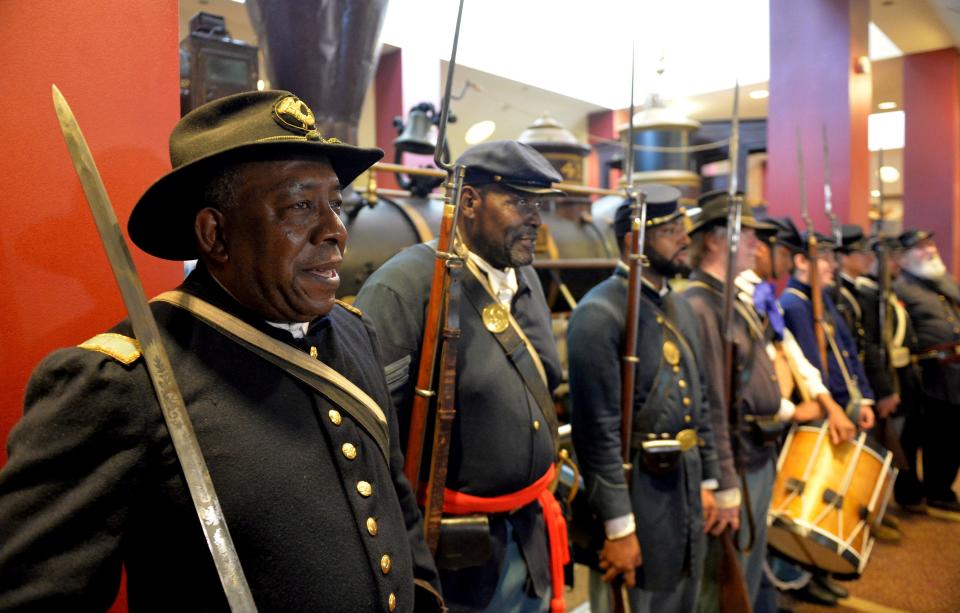Beto O’Rourke: From Juneteenth to today, Americans are still on the march for justice

We like to think that the Emancipation Proclamation ended slavery in America. But African Americans in my home state of Texas remained in bondage following President Lincoln’s 1863 decree. It wasn’t until this day, two years later, that they could finally celebrate their freedom.
And just as it took far too long for promised rights to become realized in Texas, the same has held true in our country ever since.
Wednesday, on Juneteenth, we celebrate the heroes who devoted their lives toward the abolition of slavery. People like Frederick Douglass, Sojourner Truth and Harriet Tubman believed that America could leave its original sin in the past by ushering in a future that would reflect our founding belief that all of us are created equal.
In the century and a half since abolition, civil rights leaders like Rep. John Lewis, Martin Luther King Jr., Ella Baker and Fannie Lou Hamer have helped our country come closer than we’ve ever been toward realizing that promise. But for as much progress as we’ve made, all of us ought to reflect on how much of this work is still unfinished.
The legacy of America's original sin lives on
In the winter after the 1967 riots, Bobby Kennedy addressed the Citizens Union in New York City. And in the face of that division, he explained that all of us, no matter where we come from, we share a precious possession: the name American.
He said: “To be an American means to have been an outcast and a stranger, to have come to the exiles' country, and to know that he who denies the outcast and stranger still amongst us, he also denies America.”
Kennedy was speaking in 1967 but could have been speaking in 2019 about those who, today, have been exiled in their own country.

The legacy not only of slavery but also of suppression and Jim Crow lives on in every single facet of our society. America has the world's highest incarceration rate — and our prison population is disproportionately made up of black men. And we have a maternal mortality crisis that is at least three times as deadly for black women. We also know that black patients are more likely to die at early ages due to health problems than white patients. Perhaps this shouldn’t come as a surprise when we have black men and black women living with a higher uninsured rate than white men and white women.
On average, black families have a tenth the wealth of white families — and are unemployed at double the rate. Predominantly nonwhite school districts are forced to contend with a $23 billion gap in funding versus predominantly white districts. And more than 50 years after the Voting Rights Act eliminated poll taxes and grandfather clauses, black Americans are still being systematically drawn out of our democracy through racist voter ID laws that can reduce turnout and partisan gerrymandering efforts that undermine the notion that all our votes count equally.
An unbroken chain of demands for justice
We can do better. And we must.
The only way our government will ever work for all Americans is if every single one of us is included in our democratic process — especially people of color, who have been silenced for far too long. That’s why I am proposing a new Voting Rights Act for the 21st century — because as Frederick Douglass once said: “Power concedes nothing without a demand. It never did and it never will.”
Our new Voting Rights Act would crack down on draconian voter ID laws; prevent politically motivated state officials from purging the voter roles to game the system; expand vote-by-mail and early voting; and declare the first Tuesday of every November a national holiday, so no one has to choose between going to work and participating in their democracy. As a result, we would bring millions of new voters to the polls.
That’s how we can bring all of us into this democracy. From the marchers at Selma on the Edmund Pettus Bridge, to the women marching for their rights, the kids marching for their lives, and the marchers I’ve met on the picket lines calling for a living wage — there’s an unbroken chain, across the generations, of Americans making their voices heard to demand the rights and basic justice that Kennedy envisioned. And on this Juneteenth of 2019, that march continues on.
Beto O'Rourke is running for the Democratic nomination for president of the United States. He is a former U.S. congressman from Texas. Follow him on Twitter @BetoORourke
You can read diverse opinions from our Board of Contributors and other writers on the Opinion front page, on Twitter @usatodayopinion and in our daily Opinion newsletter. To respond to a column, submit a comment to letters@usatoday.com.
This article originally appeared on USA TODAY: Beto O’Rourke: From Juneteenth to today, Americans are still on the march for justice

